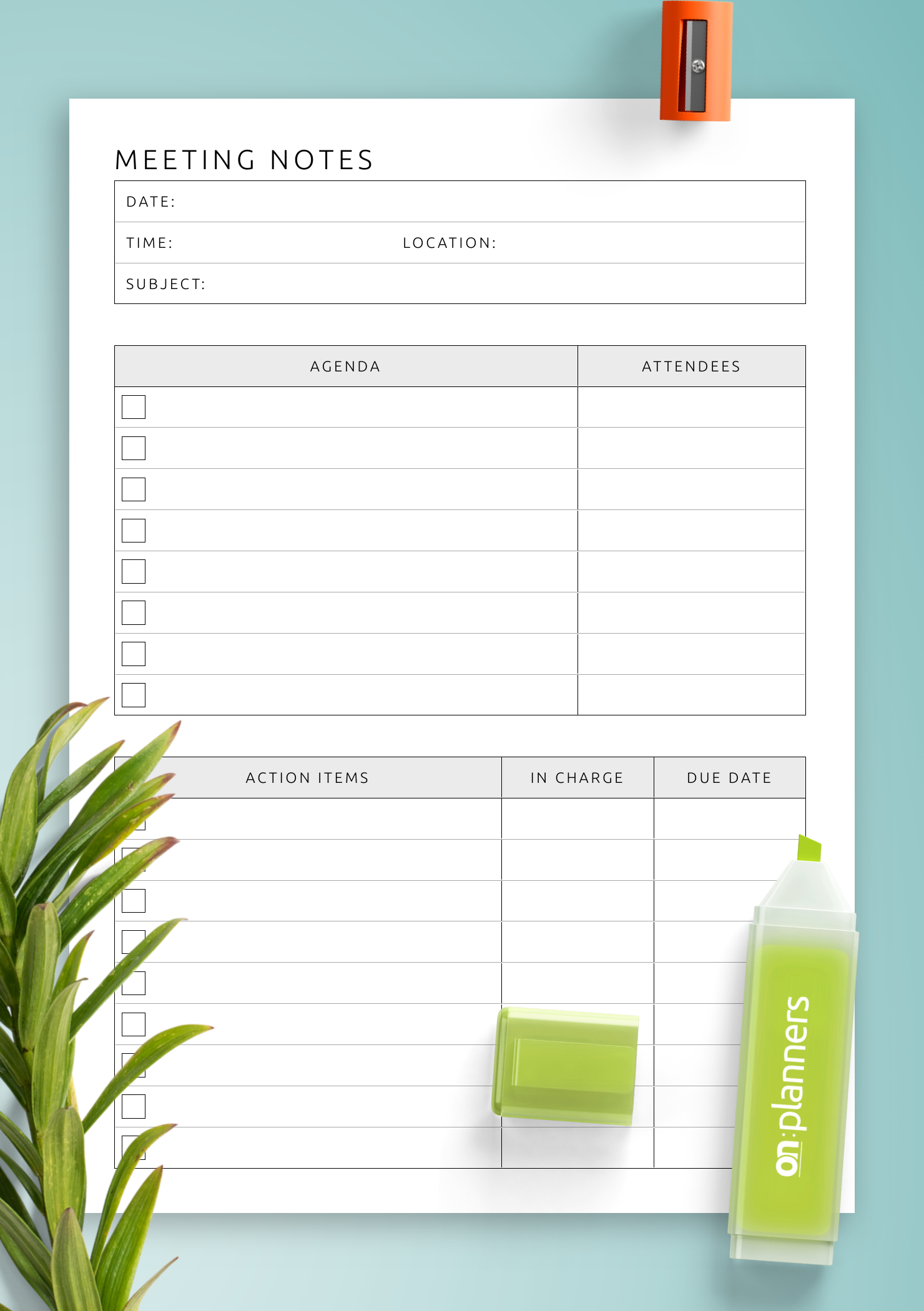Explore & Expand
Effective Meeting Minutes: How to Take Notes like a Pro
Effective meeting minutes are essential for professionals to capture critical details discussed in meetings. For new and experienced employees alike, being able to produce comprehensive, accurate minutes is a crucial skill for tracking meeting conversations, decisions made, action items, and information shared.
With proper effective meeting minutes, you and your team can easily review and follow up on important matters long after the meeting concludes. This allows everyone to stay aligned and complete assigned tasks on time. Therefore, learning best practices for taking excellent minutes is pivotal for managers and administrative staff in any industry.
In this extensive guide, we will delve into proven strategies for preparing to record meeting minutes, taking detailed notes during meetings, tidying up and formatting effective meeting minutes afterwards, and properly organizing and sharing them for access by all relevant stakeholders. Let’s get started!
Before the Meeting
To enable taking clear, comprehensive meeting minutes, make sure to do the following preparation:
- Have pens, paper, laptop ready to record effective meeting minutes. Typing allows for easier future editing and formatting.
- Obtain any agenda or meeting materials to review prior, so you know what to listen for and can identify keywords to note for the meeting minutes.
- Prepare a template outlining sections such as date, time, attendees, agenda items, discussions, decisions, actions, etc to organize meeting minutes.
- Arrive early and sit where you can see and hear every participant clearly to accurately capture meeting minutes.
- Review previous minutes if available to understand expected conventions and level of detail for meeting minutes.
- Test any recording devices if minutes will be recorded for later transcription.

During the meeting
Devote your full attention to taking clear, thorough notes for meeting minutes:
- Note the meeting name, date, location, start and end times, and any dial-in details if virtual for the effective meeting minutes.
- Record all attendees’ names, roles/titles, and whether present or absent for the meeting minutes.
- Summarize key discussions under each agenda item rather than attempting to transcribe conversations verbatim for meeting minutes.
- Document all decisions made clearly, noting justifications/reasons in the meeting minutes.
- Record action items in detail including owner, due date, and relevant context for the meeting minutes.
- Pay close attention to any motions, votes, next steps that occur for the meeting minutes.
- Note important data, facts, examples referenced during discussions for the meeting minutes.
- Mark any agenda items deferred for later discussion in the meeting minutes.
- Ask for clarification immediately if you miss anything significant for the meeting minutes.

After the Meeting
Once the meeting concludes, promptly complete and format the meeting minutes:
- Expand any rough notes while discussion is still fresh in your mind to enhance the meeting minutes.
- Organize all notes in logical order such as chronologically per agenda for the meeting minutes.
- Ensure formatting and styles align with organization and team conventions for the meeting minutes.
- Proofread for any mistakes in grammar, spelling, punctuation, wording and correct to polish the meeting minutes.
- Verify and fill in any missing or incomplete information in the meeting minutes.
- Send draft minutes to the chairperson for review prior to broader distribution of the meeting minutes.
- Incorporate any feedback and mark as draft or final version for the meeting minutes.

Storing and Sharing To enable access to accurate meeting minutes for all stakeholders:
- Save final electronic minutes as accessible Word or PDF files rather than image formats like JPG for meeting minutes.
- Include clear filenames such as “Marketing Team Meeting Minutes 2023-03-01” and use version numbers if updated.
- Maintain a searchable, centralized folder or archive for all meeting minutes that is easily accessible.
- Distribute the final meeting minutes to all invitees as soon as possible after meeting when events are still fresh.
- For more casual meetings, summarizing action items in email may suffice if detailed meeting minutes are unnecessary.

Conclusion Producing comprehensive, accurate meeting minutes is vital for documenting key discussions, decisions, task assignments and information shared in meetings for any organization. By honing best practices for preparing, taking organized notes, tidying them up afterwards, and properly storing and sharing effective meeting minutes, any professional can master this indispensable skill to benefit their team. Keeping orderly records of meeting minutes leads to greater transparency, productivity and efficiency.


